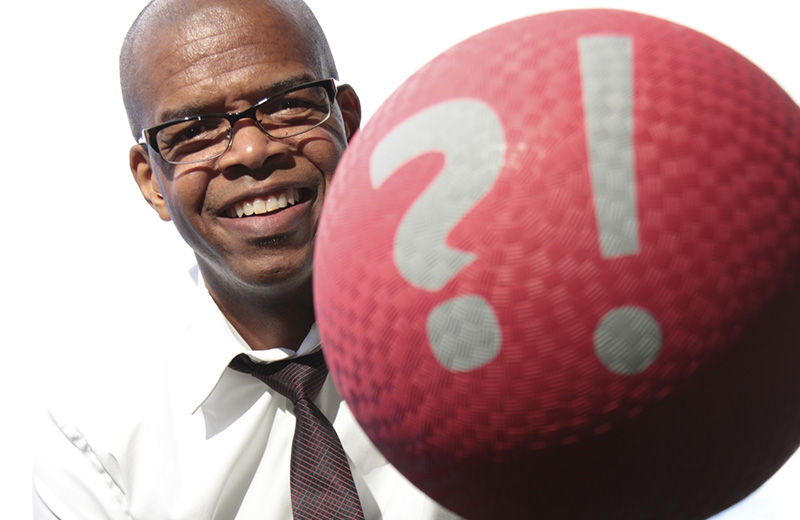Are These the Best College Football Stadiums?
NFL.com released its “Best College Football Stadiums” list as part of its “14 for ’14” series.
“What does it take to have a great stadium? Certainly some history, mixed in with a little bit of mystique, combined with a great view and plenty of fans yelling at the top of their lungs,” Bryan Fischer wrote.
Here are the top five, according to its list.
1. The Rose Bowl—No matter who is playing in the bowl game, there’s nothing like watching the sun set on the San Gabriel Mountains while seeing great football being played on the field on New Year’s Day.”
2. LSU’s Tiger Stadium—”The tailgating scene is ridiculous, it has a unique exterior design, the opposing fans are stuffed a mile away from the action and it can get louder than anywhere when the Tigers need the noise.”
3. Washington’s Husky Stadium—”Thanks to a $250 million renovation this is one of the nicest venues in the sport and the administrators somehow managed to make it even louder with fans closer to the action than ever before.”
4. Texas A&M’s Kyle Field—”Even if you don’t look at what the field will be like a year from now, this is still one of the best places to watch football thanks to the fans, affectionately known as the 12th Man.”
5. Oregon’s Autzen Stadium—”With all the amenities you can ask for from field level to the press box, a trip to Eugene for a game here should be on the bucket list.”
Please visit NFL.com to see the rest of the list, and let us know in the comments section how much you agree or disagree with the list.
Stand and Deliver
You might want to stand up for this. Researchers recently discovered that standing during meetings boosts excitement around group projects and reduces turf defense.
“Organizations should design office spaces that facilitate non-sedentary work,” said Andrew Knight of the Olin Business School at Washington University. “Our study shows that even a small tweak to a physical space can alter how people work with one another.”
Knight and colleague Mark Baer had participants in the study work together in teams for 30 minutes on the creation of university recruitment videos. The teams worked either in rooms with tables and chairs or ones with tables but no chairs. The participants also wore small sensors on their wrists to measure how their bodies react when they get excited.
The researchers found that teams who stood had greater physiological arousal and were less territorial about their ideas than the sitting teams. Because the standing teams were less territorial, ideas were shared more easily and the end result was higher quality videos.
“Seeing that the physical space in which a group works can alter how people think about their work and how they relate with one another was very exciting,” Knight said.
As leaders, you often have control over office configurations and furniture selection.
“The manipulation that we investigated in this research—in which we simply removed chairs from the room—was relatively small, yet produced meaningful differences in group arousal and group idea territoriality,” Knight and Baer wrote in the study. “Our results suggest that if leaders aspire to enhance collaborative knowledge work, they might consider eschewing the traditional conference room setup of tables and chairs and, instead, clear an open space for people to collaborate with one another.”
(photo credit: Ben Terrett via photopin cc)
Why Play is Important for Your Success
Kevin Carroll is the 2014 VenueConnect closing keynote speaker and is the author of three books—Rules of the Red Rubber Ball, What’s Your Red Rubber Ball?!, and The Red Rubber Ball at Work. As an author, speaker, and agent for social change (a.k.a. the Katalyst), it is Carroll’s “job” to inspire businesses, organizations, and individuals—from CEOs and employees of Fortune 500 companies to schoolchildren—to embrace their spirit of play and creativity to maximize their human potential and sustain more meaningful business and personal growth.
We have an interview with Carroll in the upcoming June/July issue of FM magazine. To get you excited about the conference and the article, here’s a little teaser from the full story.
FM: How much influence does play have on professional success?
Carroll: Play is the foundational piece to us being able to do so many things—problem solving, abstract thinking, innovation, ingenuity. When we were playing as children, we were honing skills in those categories.
You were getting better at problem solving, you were getting better at your imagination, being innovative, being ingenious, using your creative genius. You were doing all those things in play because most of the time what you were trying to do was extend the play, extend the game, keep the game going.
These very early exercises in using your imagination and problem solving and conflict resolution, all these things that you were doing out of necessity to just keep playing, all contribute to your ability to do that when you get into the professional world.
It’s about being around something that gives you joy, being around something that frees you up and doesn’t clog your brain, where you just open up and you’re surrendering to that moment. You’re so present because you’re doing that activity. You’re not thinking about anything else.
Physical activity actually primes the brain, and it’s an access for being more open to ideas. When you understand that physical movement—that breakaway, for example, to prepare yourself to get your mind right—can really increase the likelihood of coming up with the solution, then you really see how play and movement are really significant and important in our success professionally.
You don’t have creative confidence if you’re not practicing your playfulness. If you’re not practicing being innovative, it’s not just going to happen because you have an ideation session or a brainstorming session on your calendar. You have to be prepared for it, and you have to have creative confidence. I think play is at the root of our creative confidence.
There’s still time to register for VenueConnect. See you in Portland!
(Image: www.kevincarollkatalyst.com)
VenueConnect Attendees Can Win $300, See How
Here in the U.S., July 4th is a time for celebration, and we’re getting in on it, too. Register by 11:59 p.m. (CDT) Friday for 2014 VenueConnect and be entered in a drawing for a $300 American Express gift card. If you already registered, you’re already entered!
The winner will be notified on Monday, July 7th.
Industry News Weekly Roundup
There was a lot of news this past week. Here are some stories that caught our eyes.
Advertisement-Shy Wimbledon Is World’s Most-Lucrative Tennis Tournament
—Newsweek
“Every summer, a private club with fewer than 500 members holds a tennis tournament in a London suburb that produces a clear, off-the-top profit in excess of $60 million in just two weeks.”
Australia’s Live Industry Worth $2.5 Billion
—Encore
“According to the new study, the bulk of the revenue generated by the industry during the reporting period was spent on people (54%), including performers and non-performing support staff such as technical and venue crew.”
Schools Aiming to Improve Fan Amenities
—ESPN
“Coming soon to a college football stadium near you: interactive phone apps, live pregame locker room footage, concession stands filled with food from local eateries.”
Is Smaller Better? The Trend toward Smaller and Shorter Meetings
—eVenues Blog
“To fully take advantage of the long-term changes in the meetings industry, venues that can offer small-meetings services need to effectively promote themselves to their potential customers.”
Music Changes the Way You Think
—Scientific American
“Tiny, almost immeasurable features in a piece of music have the power to elicit deeply personal and specific patterns of thought and emotion in human listeners.”
(photo credit: Rob McGlynn/Creative Commons)
Do you want to receive a Front Row News weekly digest?
Categories
- Allied (856)
- Architecture (147)
- Arenas (744)
- Career (890)
- Convention Centers (889)
- Education (608)
- Events (1,528)
- Food & Beverage (193)
- Foundation (113)
- Guest Experience (1,482)
- Industry News (2,253)
- Leadership (1,872)
- Marketing (150)
- Membership (1,985)
- Music (212)
- Performing Arts Centers (453)
- Professional Development (398)
- Research (127)
- Safety & Security (425)
- Sports (763)
- Stadiums (607)
- Student (159)
- Technology (515)
- Ticketing (92)
- Touring (82)
- Trends (357)
- Uncategorized (771)
- Universities (216)
- Video (25)
- Young Professional (198)
Twitter Feed
- Twitter feed loading
Recent Posts
- GEODIS Park Selects Allied Universal As Its Preferred Event Services Provider
- Venuworks Appoints Marc Solis as Executive Director of the Fresno Convention and Entertainment Center
- Los Angeles Convention Center Diverts 8,000 Pounds of Wood Waste to Local Foundation Supporting Fire Victims
- Fort Worth Unveils Plans for Phase 2 of Convention Center Transformation
- San Diego Convention Center CEO Announces Retirement After a Decade of Leadership
Categories
- Allied
- Architecture
- Arenas
- Career
- Convention Centers
- Education
- Events
- Food & Beverage
- Foundation
- Guest Experience
- Industry News
- Leadership
- Marketing
- Membership
- Music
- Performing Arts Centers
- Professional Development
- Research
- Safety & Security
- Sports
- Stadiums
- Student
- Technology
- Ticketing
- Touring
- Trends
- Uncategorized
- Universities
- Video
- Young Professional
Archives
- February 2026
- January 2026
- December 2025
- November 2025
- October 2025
- September 2025
- August 2025
- July 2025
- June 2025
- May 2025
- April 2025
- March 2025
- February 2025
- January 2025
- December 2024
- November 2024
- October 2024
- September 2024
- August 2024
- July 2024
- June 2024
- May 2024
- April 2024
- March 2024
- February 2024
- January 2024
- December 2023
- November 2023
- October 2023
- September 2023
- August 2023
- July 2023
- June 2023
- May 2023
- April 2023
- March 2023
- February 2023
- January 2023
- December 2022
- November 2022
- October 2022
- September 2022
- August 2022
- July 2022
- June 2022
- May 2022
- April 2022
- March 2022
- February 2022
- January 2022
- December 2021
- November 2021
- October 2021
- September 2021
- August 2021
- July 2021
- June 2021
- May 2021
- April 2021
- March 2021
- February 2021
- January 2021
- December 2020
- November 2020
- October 2020
- September 2020
- August 2020
- July 2020
- June 2020
- May 2020
- April 2020
- March 2020
- February 2020
- January 2020
- December 2019
- November 2019
- October 2019
- September 2019
- August 2019
- July 2019
- June 2019
- May 2019
- April 2019
- March 2019
- February 2019
- January 2019
- December 2018
- November 2018
- October 2018
- September 2018
- August 2018
- July 2018
- June 2018
- May 2018
- April 2018
- March 2018
- February 2018
- January 2018
- December 2017
- November 2017
- October 2017
- September 2017
- August 2017
- July 2017
- June 2017
- May 2017
- April 2017
- March 2017
- February 2017
- January 2017
- December 2016
- November 2016
- October 2016
- September 2016
- August 2016
- July 2016
- June 2016
- May 2016
- April 2016
- March 2016
- February 2016
- January 2016
- December 2015
- November 2015
- October 2015
- September 2015
- August 2015
- July 2015
- June 2015
- May 2015
- April 2015
- March 2015
- February 2015
- January 2015
- December 2014
- November 2014
- October 2014
- September 2014
- August 2014
- July 2014
- June 2014
- May 2014
- April 2014
- March 2014
- February 2014
- January 2014
- December 2013
- November 2013
- October 2013
- September 2013
- August 2013
- July 2013
- June 2013
- May 2013
- April 2013
- March 2013
- February 2013
- January 2013
- May 2012
- March 2012
- December 2011
- November 2011
- October 2011
Recent Comments
- Frank Bradshaw, Ph.D., CVE on John Meyer, CVE, a Tireless Advocate of Certification for Venue Professionals, Has Died
- Neil Sulkes on Hilary Hartung, Friend to Many in Venue Marketing, Has Left Us
- Jason Parker, CVE on The Devastation of Hurricane Helene and How We Can Support One Another
- Larry Perkins on Touhey Testifies Against Speculative Ticketing Before Congressional Subcommittee
- Peter Secord on Major Players for Planned Elkhart Amphitheater Were in the Mix at VenueConnect





